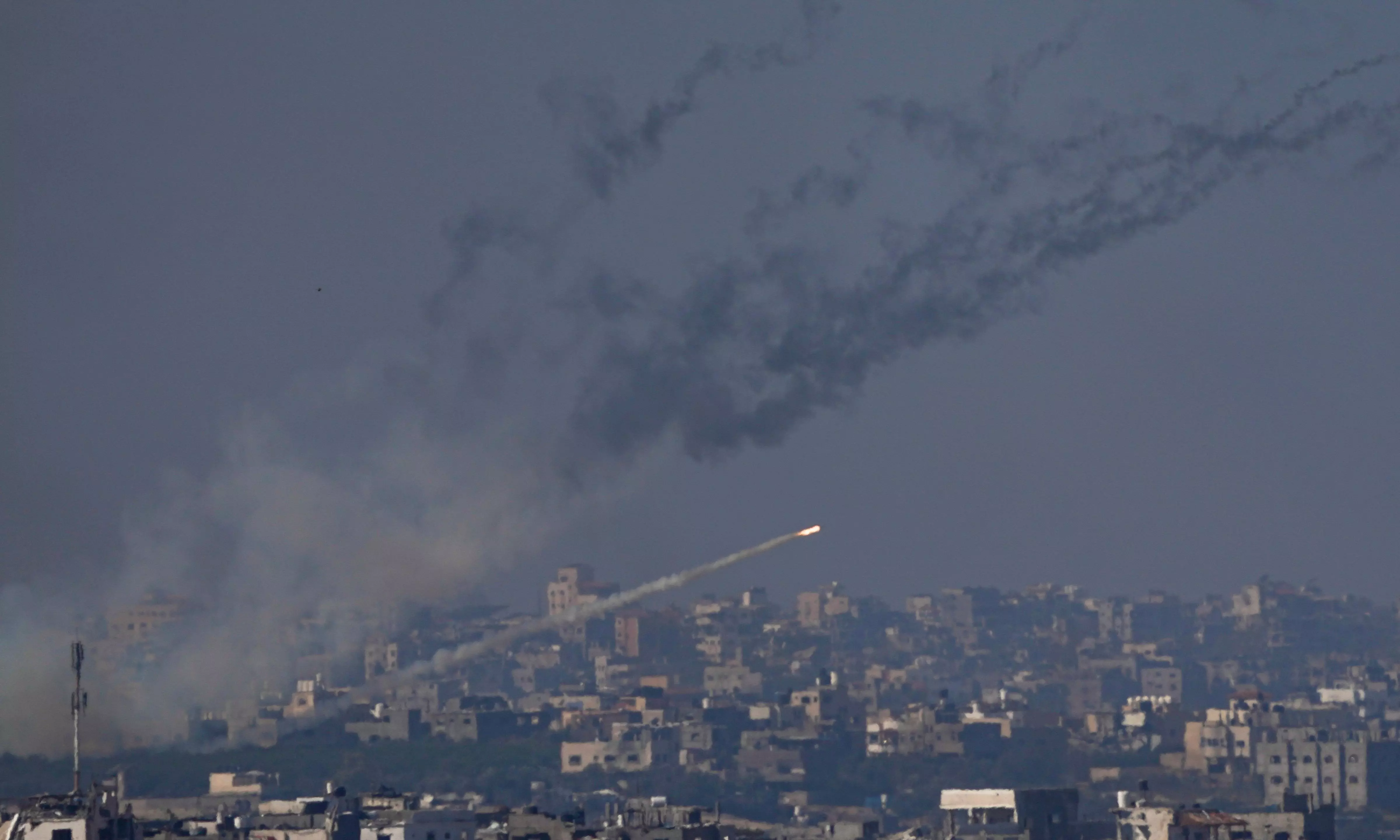
'Lebanon on brink of new war,' says PM Nawaf Salam after Israel vows to retaliate
The rocket attacks on Israel from Lebanon on Saturday threaten the delicate ceasefire that brought an end to the year-long conflict between Israel and Hezbollah

Lebanon’s Prime Minister Nawaf Salam on Saturday (March 22) warned that his country is on the brink of a new war, after Israel vowed to retaliate against rocket attacks that were launched from Lebanese territory.
“Salam warned of renewed military operations on the southern border, because of the risks they carry dragging the country into a new war, which will bring woes to Lebanon and the Lebanese people,” the prime minister’s office said in a statement.
He said that all security and military measures must be taken to show that Lebanon decides on matters of war and peace.
Also Read: Israel carries out airstrikes in Gaza, Lebanon and Syria, killing at least 10 people
The present tensions threaten the delicate ceasefire that brought an end to the year-long conflict between Israel and Hezbollah. The rocket attacks from Lebanon on Saturday prompted former Israeli Defence Minister Avigdor Lieberman to criticise Prime Minister Netanyahu for failing to restore security.
“Rockets from Gaza, Yemen, and Lebanon in a single day. The prime minister of October 7 is a danger to Israel’s security,” said Lieberman.
Israel warns of ‘severe response’
Israel earlier said it would respond “severely” to an attack from Lebanon after rockets were fired into northern Israel on Saturday morning (March 22), a day after it vowed to increase the intensity of its operations in Gaza.
Israel's army said the intercepted rockets were targeting the Israeli town of Metula. This is the second time rockets have been fired from Lebanon into Israel since December, sparking concern about whether the fragile ceasefire with the Lebanese militant group Hezbollah would hold.
Also Read: Hundreds attend Hezbollah leader Nasrallah's funeral 5 months after his killing
Hezbollah began launching rockets, drones, and missiles into Israel the day after Hamas' October 7, 2023 attack out of Gaza ignited the war there. The Israel-Hezbollah conflict boiled over into an all-out war in September as Israel carried out massive waves of airstrikes and killed most of the militant group's senior leaders. The fighting killed more than 4,000 people in Lebanon and displaced about 60,000 Israelis.
Under the ceasefire reached in November, Israeli forces were supposed to withdraw from all Lebanese territory by late January. The deadline was then extended to February 18 by agreement between Lebanon and Israel.
Lebanon’s appeal to UN
But since then, Israel's remained in five locations in Lebanon located across from communities in northern Israel and has carried out dozens of airstrikes on southern and eastern Lebanon, saying it attacked Hezbollah targets. Lebanon has appealed to the UN to pressure Israel to fully withdraw from the country.
On Saturday, Defense Minister Israel Katz said the country will not allow Lebanon to fire into Israeli communities.
“We promised security to the Galilee communities and that is exactly what will happen,” he said.
Also Read: Israel-Hezbollah peace deal offers big relief for Lebanese residents
There was no immediate comment from Hezbollah.
In a statement, Lebanon's Prime Minister, Nawaf Salam, asked the Lebanese military to take all necessary measures in the south, but said the country did not want to return to war.
Israel plans fresh assaults into Gaza
The strikes come a day after Israel said it would carry out operations in Gaza “with increasing intensity” until Hamas frees the 59 hostages it holds — 24 of whom are believed alive.
Israel's military said on Friday (March 21) its forces were planning fresh assaults into three neighbourhoods west of Gaza City and issued warnings on social media for Palestinians to evacuate the areas.
Also on Friday, Israel blew up the only specialised cancer hospital in the war-torn territory. The Israeli military said it struck the Turkish-Palestinian Friendship Hospital, accusing Hamas militants of operating on-site. Turkiye, which helped build and fund the hospital, said Israeli troops at one point used it as a base.
600 Palestinians killed this week
Around 600 Palestinians have been killed since Israel relaunched the war earlier this week. Israel had already cut off the supply of food, fuel, and humanitarian aid to Gaza's roughly 2 million Palestinians, aiming to pressure Hamas over ceasefire negotiations.
The international community has condemned the resumed attacks. In a statement on Friday, the foreign ministers of the United Kingdom, France, and Germany called Israel's strikes in Gaza a dramatic step backward.
Also Read: 'Will lead to peace, stability in wider region': Israel-Lebanon ceasefire hailed by India
“We are appalled by the civilian casualties and urgently call for an immediate return to a ceasefire," they said in a joint statement.
The attack by Hamas-led militants in 2023, killed some 1,200 people and took 251 hostages. Most of the hostages have been freed in ceasefire agreements or other deals. Israeli forces have rescued eight living hostages and recovered the bodies of dozens more.
Israel's retaliatory offensive has killed more than 49,000 Palestinians, according to the Gaza Health Ministry. It does not say how many were militants but says more than half of those killed were women and children. Israel says it has killed around 20,000 militants, without providing evidence.
(With agency inputs)

